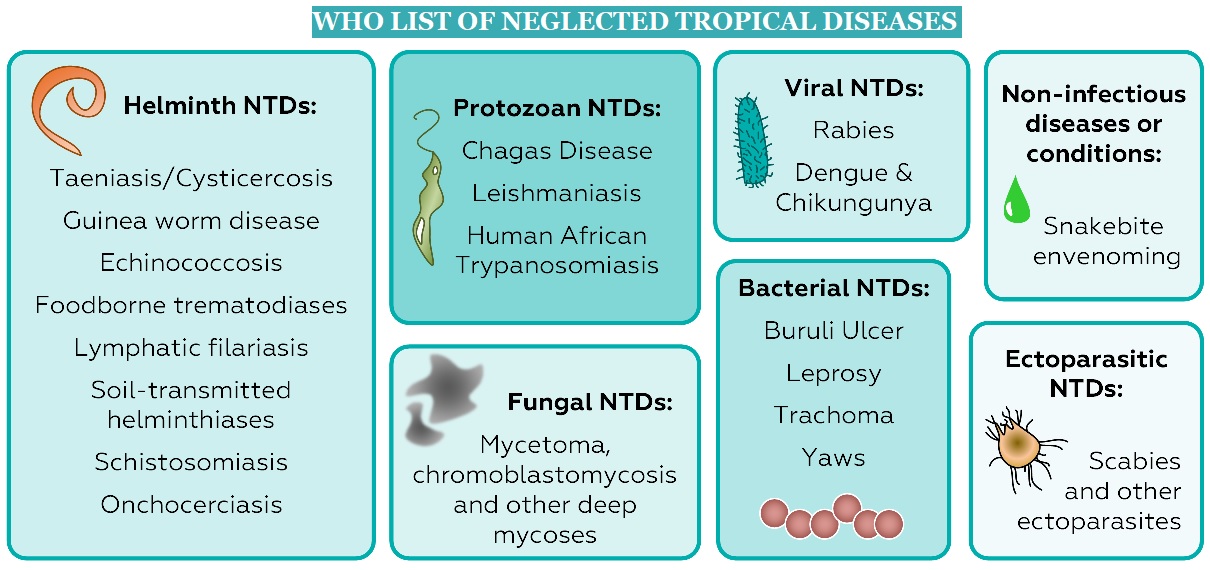7667766266
enquiry@shankarias.in
According to a new World Health Organization (WHO) report, Neglected Tropical Diseases (NTD) disproportionately impact the most impoverished members of the international community.

According to the official site of World Neglected Tropical Disease Day, 1 in 5 people worldwide are affected by NTDs.
References